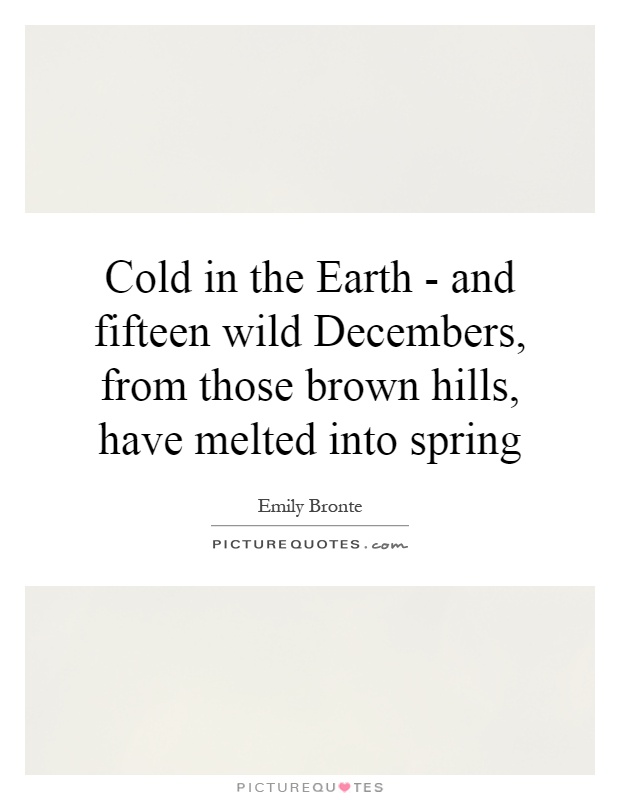Cold in the Earth - and fifteen wild Decembers, from those brown hills, have melted into spring

Cold in the Earth - and fifteen wild Decembers, from those brown hills, have melted into spring
The line "Cold in the Earth - and fifteen wild Decembers, from those brown hills, have melted into spring" is a poignant and evocative verse from Emily Bronte's poem "Remembrance." This line captures the passage of time and the changing seasons, as well as the enduring nature of grief and loss.Emily Bronte, best known for her novel "Wuthering Heights," was a talented poet as well. Her poetry often explores themes of nature, love, and mortality, and "Remembrance" is no exception. In this poem, Bronte reflects on the pain of losing a loved one and the passage of time that follows.
The opening line, "Cold in the Earth," sets a somber tone, suggesting the finality of death and the cold, lifeless state of the grave. The mention of "fifteen wild Decembers" emphasizes the passage of time, as fifteen years have passed since the speaker's loved one was laid to rest. The use of the word "wild" suggests the tumultuous nature of grief and the unpredictable ways in which it can affect us.
The image of the "brown hills" melting into spring is a powerful metaphor for the gradual thawing of grief and the eventual renewal of life. Just as the earth transitions from cold and barren to warm and fertile, so too can the heart heal and find new life after loss.
Bronte's use of language in this line is both beautiful and haunting. The juxtaposition of cold and warmth, death and rebirth, captures the complex emotions that accompany the process of grieving. The imagery of the brown hills melting into spring is a vivid and striking image that lingers in the mind long after the poem has been read.
Overall, this line from "Remembrance" encapsulates the themes of loss, time, and renewal that are central to Emily Bronte's poetry. It is a reminder of the enduring power of love and memory, even in the face of death and decay.












 Friendship Quotes
Friendship Quotes Love Quotes
Love Quotes Life Quotes
Life Quotes Funny Quotes
Funny Quotes Motivational Quotes
Motivational Quotes Inspirational Quotes
Inspirational Quotes